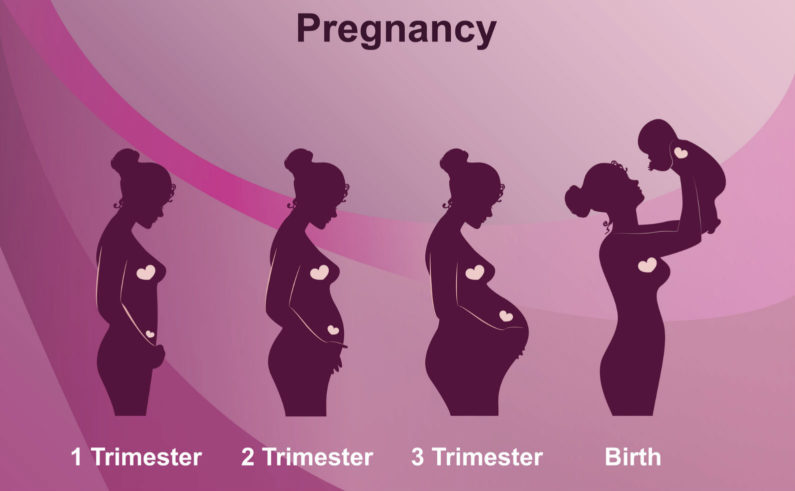Spring is a time to celebrate the miracle of life and reflect on not just how mothers have impacted our lives, but how motherhood has impacted them. During the course of nine months of pregnancy, moms-to-be undergo common physical and emotional changes that lead to childbirth, from weight gain to mood swings. However, Healthline.com’s infographic “Body Changes During Pregnancy” illustrates the other surprising body changes women experience.
Body image becomes a huge concern for women during pregnancy. A full-term pregnancy lasts about 40 weeks, says the Office On Women’s Health, counting from the first day of your last normal period. These weeks are grouped into trimesters where a woman’s body undergoes severe changes and discomfort.
A pregnant woman’s body is ever-changing from the time of conception up until the time she gives birth. The effects of pregnancy are so influential, they affect the number of breaths per minute a woman takes. The respiratory system changes as the respiratory rate rises as a means to compensate for increased maternal oxygen consumption. This is needed for the demands of the uterus, placenta, and the fetus. The increase in breathing rate means an increase in cardiac output, blood volume, and resting heart rate. However, the expanding uterus on the large veins causes the blood to slow in its return to the heart.
The expansion of the uterus influences the functionality of the other systems in the body. The uterus will add approximately 2 pounds to a woman’s body weight as it enlarges. It has the ability to rise up and out of the pelvic cavity, displacing the stomach, the intestines, and other nearby organs.
The abdomen itself begins to expand during the second trimester with the top of the uterus moving over the rib cage by the end of this stage. The more the uterus grows, too, the more pressure it puts on the bladder, urethra, and the pelvic floor muscles, which leads to frequent urination. It also forces the kidneys to work extra hard to excrete the mother and the fetus’s waste products.
The more well-known physical changes associated with pregnancy include body weight, hair and nail texture, leg cramps, swelling of the feet and ankles, and body temperature.
View the infographic below to learn more about how the stages of pregnancy heavily influence a woman’s body during these nine months.
By via @medicaldaily.com

